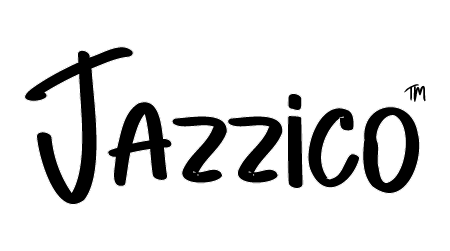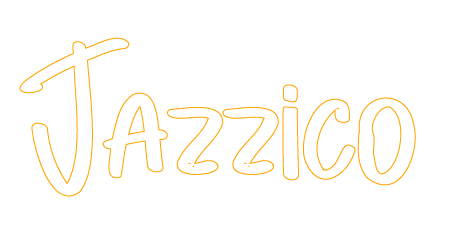In our fast-paced and information-driven world, staying organized is crucial to achieving maximum productivity. Whether you're a student, a professional, or a creative individual, taking notes is an essential part of retaining information and generating new ideas. However, without proper organization, your notebooks can quickly become chaotic and counterproductive. In this article, we will explore effective strategies to organize your notebooks and boost your productivity.
1. Introduction
Taking notes is not just about jotting down information; it's about creating a system that allows you to access and utilize that information efficiently. An organized notebook enables you to find what you need when you need it, saving you time and effort in the long run.
2. Assessing Your Notebook Needs
Before diving into organizing your notebooks, take a moment to assess your needs. Consider the purpose of your notes and what you want to achieve through them. Are you a student trying to keep track of lectures and assignments, a professional managing projects and meetings, or a creative person capturing ideas and inspirations?
- Identifying Your Goals and Objectives
Understanding your goals and objectives will help you tailor your notebook organization to suit your specific needs. It will also give you a sense of direction when selecting the right tools and methods.
- Choosing the Right Notebook Type
Different tasks may require different types of notebooks. Some might prefer traditional paper notebooks, while others may find digital notebooks more convenient. Choose the one that aligns best with your preferences and workflow.
3. Creating a Notebook System
Now that you know your notebook needs, it's time to create a systematic approach to organizing your notes effectively.
- Organizing by Topics or Projects
Divide your notebook into sections based on topics, subjects, or projects. This separation allows you to find related information easily and prevents mixing unrelated notes.
- Using Color Coding and Labels
Implement a color-coding system to visually distinguish between different topics or categories. Additionally, use labels or tabs to mark important pages and sections for quick reference.
- Incorporating Index Pages
Include index pages in your notebooks to create a roadmap of your notes. Indexing helps you locate specific information without flipping through the entire notebook.
4. Utilizing Digital Tools
In today's digital age, incorporating digital tools can enhance your note-taking and organization process.
- Note-Taking Apps and Software
Numerous note-taking apps and software are available that offer advanced features like search, tagging, and multimedia integration. Explore these options and choose the one that aligns with your needs.
- Cloud Storage and Synchronization
Using cloud storage allows you to access your notes from any device with an internet connection. It also ensures your data is backed up, preventing any loss of information.
5. Maintaining and Reviewing Notebooks
Keeping your notebooks organized is an ongoing process that requires regular maintenance and review.
- Regular Cleanup and Decluttering
Periodically go through your notebooks to remove outdated or irrelevant information. Decluttering will keep your notebooks focused and reduce the time spent searching for relevant notes.
- Setting Up Review Sessions
Schedule regular review sessions to revisit and reinforce your notes. Repetition aids retention and helps you retain information effectively.
6. Integrating Notebooks into Your Workflow
Integrate your notebooks seamlessly into your daily workflow for optimal productivity.
- Combining Digital and Physical Notebooks
Use both digital and physical notebooks to leverage the advantages of both mediums. Digital notebooks offer searchability, while physical notebooks offer a tangible and sensory experience.
- Syncing with Task Management Systems
Sync your notes with your task management systems to convert ideas into actionable tasks seamlessly. This integration streamlines your productivity and ensures important tasks are not overlooked.
7. Benefits of Organized Notebooks
Organizing your notebooks yields several benefits that significantly impact your productivity and creativity.
- Enhanced Productivity and Efficiency
An organized notebook system saves time and minimizes distractions, enabling you to focus on tasks that matter the most.
- Improved Creativity and Idea Management
With a well-organized notebook, you can easily access past ideas and build upon them, fostering creativity and innovation.
- Better Focus and Reduced Stress
Knowing that your notes are structured and accessible reduces mental clutter, leading to reduced stress and better focus.
8. Conclusion
Organizing your notebooks is a valuable investment in your productivity and overall well-being. By following the strategies outlined in this article, you can transform your note-taking experience and maximize your productivity potential.
FAQs
-
Q: How often should I review my notebooks?
- A: It's recommended to review your notebooks at least once a week, but you can adjust the frequency based on your needs.
-
Q: Can I use both physical and digital notebooks together?
- A: Absolutely! Integrating both mediums can provide the benefits of convenience and sensory experience.
-
Q: What if I have old notebooks with valuable information?
- A: You can digitize important information from old notebooks to preserve it and make it searchable.
-
Q: Should I color-code every section of my notebook?
- A: Color-coding is optional, but it can be helpful in visually organizing your notes if you deal with multiple topics.
-
Q: Are there any free note-taking apps worth trying?
- A: Yes, many note-taking apps offer free versions with essential features, and they are worth exploring before committing to a paid option.





Leave a comment
All comments are moderated before being published.
This site is protected by hCaptcha and the hCaptcha Privacy Policy and Terms of Service apply.